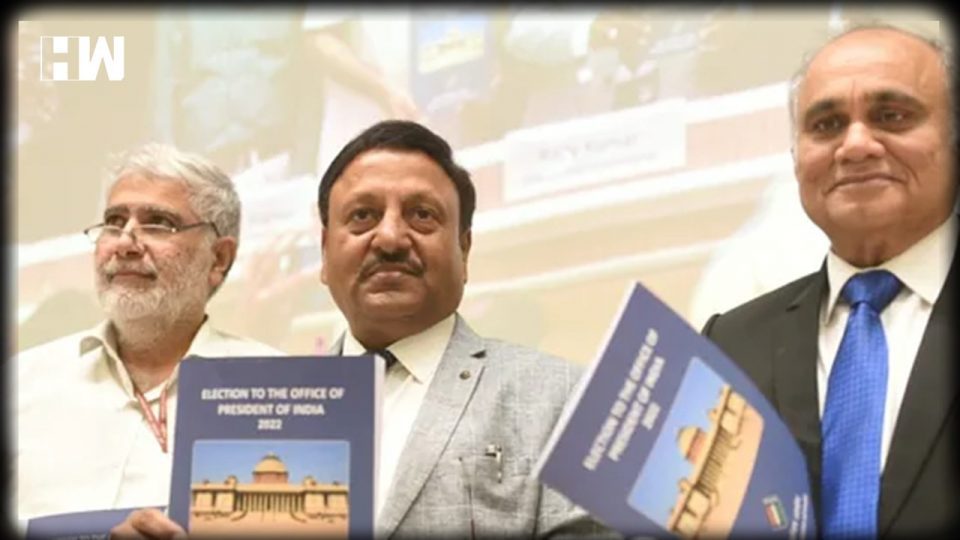There have been rumours that President Ram Nath Kovind will not seek re-election, and that a new candidate will be revealed soon.
New Delhi: The Election Commission declared today that elections to elect the next President of India will take place on July 18. If necessary, the counting will take place on July 21. According to the Commission, the next President will take the oath of office on July 25.
There have been rumors that President Ram Nath Kovind will not seek re-election, and that a new candidate will be revealed soon. Only the first president, Rajendra Prasad, has been re-elected twice.
Although government officials previously stated that a consensus candidate would be preferable, the likelihood of a vote is strong. Given the slight shift in power structure following the Congress’s increasingly bad performance in most elections since 2014, the opposition is expected to field a joint candidate, but reaching agreement on that will be difficult.
On July 24, President Kovind’s term will come to an end. Mr. Kovind, a Dalit and former Governor of Bihar, was chosen by the BJP for the country’s highest post in 2017, dividing the opposition camp.
Mr Kovind was elected the 14th President of India on July 21, defeating opposition candidate Meira Kumar, the former Speaker of the Lok Sabha, with 65.65% of the total votes cast in the election, which totaled 702,044 electoral college votes.
Members of the electoral college, which includes elected members of both houses of Parliament and legislative assemblies of states, as well as the National Capital Territory of Delhi and the Union Territory of Puducherry, elect the President.
The election will be contested by 776 parliamentarians and 4,033 lawmakers. Legislators have a total vote value of 5,43,231 while MPs have a vote value of 5,43,200. As a result, there will be 4,809 voters with a total vote worth of $10,86,431.
The announcement by the Election Commission comes just one day before polls for 57 empty Rajya Sabha seats. The seats are distributed over 15 different states.
With Jammu and Kashmir under President’s Rule and three other states — Rajasthan, Chhattisgarh, and Tamil Nadu – under opposition control, the Rajya Sabha elections would be critical for the Presidential election.
In 2017, the BJP was in power in Rajasthan and Chhattisgarh, and the ruling AIADMK’s legislators in Tamil Nadu voted for Mr Kovind. There was also widespread cross-voting, with some Congress and other party MLAs supporting the Prime Minister’s choice.
As an independent media platform, we do not take advertisements from governments and corporate houses. It is you, our readers, who have supported us on our journey to do honest and unbiased journalism. Please contribute, so that we can continue to do the same in future.

